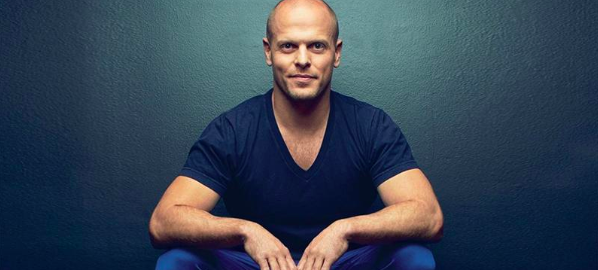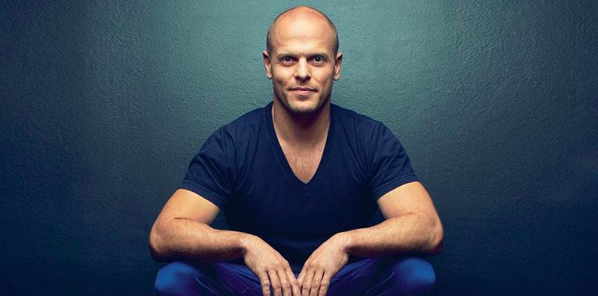

Tim Ferriss made his name as the man who can help people to create a four-hour work week. However, he’s also built a strong personal brand that speakers can learn from.
As an influencer, you put yourself out there every time you head on stage.
You’re the brand for your speaking business. Even as the business scales and develops its own brand, you’re still the figurehead. You’re the person who came up with the ideas and manages the business’ direction.
And you’re the person that audiences see as the face of it all.
That’s why building a personal brand is more important in speaking than perhaps any other industry. The stronger your personal brand, the more likely audiences are to engage with you and your ideas.
But a weak personal brand showcases a lack of authenticity. It gives people no reason to care about the story you’re showing them.
Unfortunately, building a powerful personal brand isn’t an easy task. But there are techniques that you can use to help with that.
Look to the personal branding masters to learn these techniques.
Tim Ferriss is one such master. This article examines his work and what he’s done to build such an amazing personal brand.
Who is Tim Ferriss?
If you haven’t heard of Tim Ferriss, you’ve likely heard of his work. He’s the author of The 4-Hour Work Week. He’s also built on the 4-hour concept to create 4-Hour Body and 4-Hour Chef.
It’s fair to say that “4-Hour” is his business brand.
But Ferriss is also an influential speaker who’s established himself as a brand apart from his work.
And much of his personal brand comes from the story behind the writing of his book.
Ferriss achieved “traditional” success in almost every sense of the word. A graduate of America’s famous Princeton University, he began working for a start-up in the Silicon Valley.
The job didn’t work out as Ferriss found himself dissatisfied with how much he worked for so little pay. He instead decided to create a supplements company called BodyQUICK.
The venture took off and Ferriss soon found himself at the helm of a rapidly-growing company. Unfortunately, this meant more work on his shoulders. The unexpected explosion in growth led to his company becoming bloated. All of the work mounted up until he could barely take it anymore.
During a trip to London, Ferriss had a breakdown.
It was at this low ebb that Ferriss committed to making a change. Dissatisfied with how he ran his business, he decided to streamline everything. Ferriss’ goal was to take as much work as possible out of his own hands. This would leave him with time to pursue his true passions.
From this revelation came The 4-Hour Work Week. And from there, Ferriss built a completely new business based around his own ideas.
Today, he’s a renowned online personality who’s seen as something of a guru for the overworked.
That’s his personal brand at play. Fuelled by the emotional impact of his own story, Ferriss inspires others to cast off the shackles of the 9-to-5 life.
Here are the four personal branding tips that you can learn from him.

Tip #1 – Play to Your Strengths
When growing a business, it’s often tempting to try to appeal to everyone.
That’s especially true for influencers. Your entire goal is to use your story to appeal to, and inspire action from, your audience.
The problem is that this desire to appeal to everyone can dilute your story. You try to cast as wide a net as possible, which means you stop playing to your strengths. You start speaking on subjects on which you have no authority.
That’s damaging to your personal brand. People with more knowledge than you will notice the mistakes that you make. This makes you appear inauthentic, which makes it much harder for people to engage with you.
Ferriss says that you can avoid this if you play to your strengths. And to do that, you need to identify your niche and stick to it.
In an article written for Fortune, he says:
“If everyone is your market, no one is your market. Particularly with the first versions of your product or service, it’s better to have 1,000 people who love you (and many who hate you) than 100,000 who think you’re kinda, sorta cool.”
The point here is that trying to do everything means you’re just there. Nobody’s really engaging with you. They might think you have a cool idea here or there. But they’re not looking to you as an authority on a subject because you’re trying to talk about everything.
Focusing on a niche allows you to establish yourself as an expert. That’s how you win the diehard supporters who will form the foundation of your personal brand.
You can see this in how Ferriss has expanded his business. Though he’s now talking about cooking and fitness, he still slots them into the “4-Hour” brand. That’s his niche and it’s what people associate with him. Thus, he can build his business because he’s not straying too far from what people know him for.
Tip #2 – Guard Against Digital Character Assassination
Ferriss is also quick to point out that a growing personal brand can put you in the sights of people who don’t support your message.
He points to Wikipedia as a particular important digital platform to police. After all, it’s a platform that anyone can edit.
In an article on his blog, Ferriss says:
“Wikipedia is the low-hanging fruit of choice for novice character assassins. It’s amazing PageRank and sheer incoming link volume will put it at the top of Google searches, so be sure to review it for personal and business misinformation and disinformation.”
The misinformation that spread on such platforms can cause serious damage to your personal brand.
Even if you don’t have a Wikipedia page, it’s still important to review what people say about you online. Ideally, you won’t have to fight against a tide of negative sentiment. However, it’s important to take action in cases where somebody does try to spread mistruths about you.
Tip #3 – Create Your Own Category
Other influencers and entrepreneurs can inspire your actions.
However, it’s crucial that you don’t just try to copy other people. Your audience will recognise your attempts to piggyback on somebody else’s success and ideas. This leaves you labelled as a follower, which means you can’t build a strong personal brand.
Ferriss recommends creating your own category instead of trying to compete in one that already exists.
“Being first and then striving for perfection – instead of fighting to be best in a crowded space – is the fastest path to mindshare,” he says.
In Ferriss case, he created the category of “lifestyle design”. This ensured he didn’t get lumped into the hyper-competitive “career advice” category.
Look to your own story to help you create your category. You have something completely unique to offer to an audience. Unlock its power and build your own category based on your experiences and insight.
Tip #4 – Understand When Personal Branding is a Distraction
Ferriss is quick to point to speaking as an industry where personal branding is of huge importance. However, he also recognises that you need to build a business.
Many speakers have a product or service that they’re trying to sell. If that product doesn’t deliver, it doesn’t matter how inspiring your speeches may be.
People will express their dissatisfaction, which damages the business. And as your personal brand is so closely tied to the business, that gets damaged too.
In an interview with Inc., Ferriss points to Apple as an example of how to ensure personal branding doesn’t become a distraction.
“Steve Jobs has a personal brand, but it is Apple’s product design that makes it such a valuable company,” says Ferriss.
“He isn’t jumping on Foursquare to develop his ‘personal brand.’”
The point he’s making is that you can’t spend all of your time chasing social media followers. While building your personal brand is important, it can’t come at the cost of the product that you’re offering.
You need a balance between your brand and the business to succeed.
If the product isn’t performing, personal branding can become a distraction. Sometimes, you need to draw a line under your efforts to ensure the product matches the story that you show.

The Final Word
Ferriss is an interesting case when it comes to personal branding. His story of feeling overworked and breaking down is one that many can relate to. This allows him to engage an audience and lends him an authenticity on which he can build a brand.
However, Ferriss is also a business-focused person. He’s quick to point out that personal branding isn’t everything, even for a speaker. Your efforts need to work in tandem with the business that you’re building.
After all, a bad product can undo all of the work that you’ve put into your personal brand.
Ferriss’ tips will help you to strike the balance between business and personal brand.
And Speakers Institute can show you much more about building a speaking business. We recommend that you take the following steps to get started:
-
Head to GREENROOM. The #1 Online Hub connecting you to the world’s leading Influencers, Training and Curriculum.
-
For information on dates and times of our live events, just go here: LIVE EVENTS.